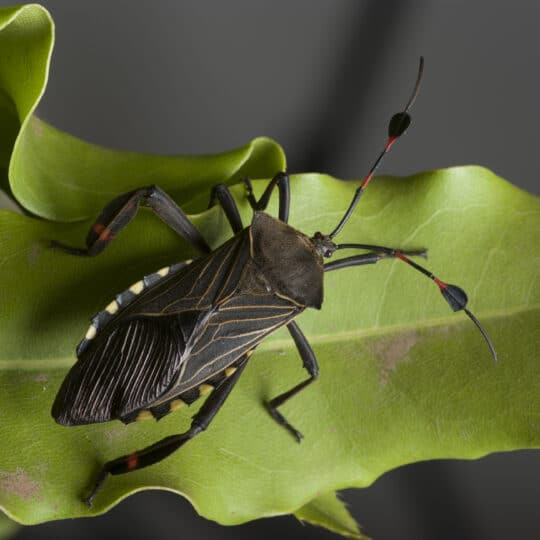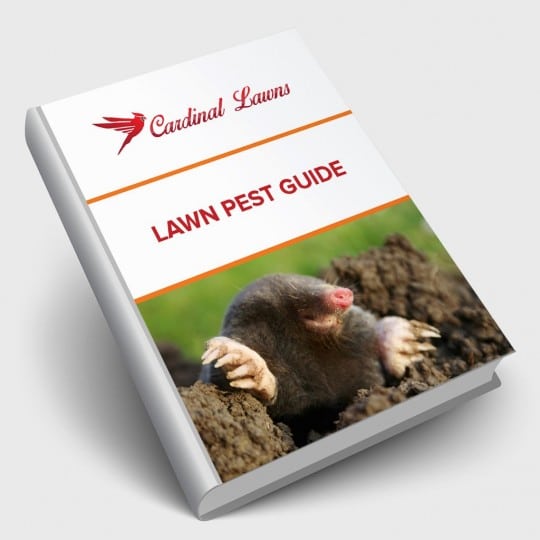Chinch Bug Control
By Maintaining a Healthy Lawn
Posted
June 24, 2021

Think getting rid of lawn pests is a cinch? Not if you have chinch bugs. Learn how to prevent an infestation and different methods of chinch bug control.
What’s a Chinch Bug
Is your yard looking dry and dead? You could be dealing with a grass-sucking pest. Chinch bugs are small, oval-shaped insects that puncture grass blades with their piercing mouth. After they suck the moisture out of your grass, you’re left with dead patches throughout your turf. Adult bugs have wings that allow them to fly from lawn to lawn. So if your neighbor has a pest problem, you could be next.
Pest Control
While you may not be able to prevent all pest problems completely, there’s a lot you can do to help your lawn survive an attack. Maintaining a healthy lawn makes it less likely you’ll have to deal with disease and pests. It also helps strengthen your lawn and minimize damage. Here are some ways to start:
Manage Lawn Thatch. Dead grass, stems, loose roots, and other debris can build up on top of the soil and create an ideal area for pests to hide. When the thatch layer is thick enough, it also limits the amount of air, sun, water, and nutrients your soil needs to survive. Plus, it creates a barrier for any insecticide treatment you try to use. This is why it’s important to break up this useless layer to let your lawn breathe. Rake your lawn or use a specialized machine to remove the thatch.
Proper Mowing. Once the thatch layer is under control, you want to keep it that way, and lawn mowing can help. Keep grass blades at the right length for your lawn. If you cut too short, you can scalp your yard. If you keep it too long, you’re inviting more diseases and insects to stay.
Proper Feeding. Test your soil to make sure it’s not lacking any nutrients. Then fertilize your lawn when needed to keep the pH level balanced.
Proper Watering. Too much water can oversaturate your lawn, inviting disease. Not enough could lead to more dry, dead patches. Give your yard a good drink now and then and maintain soil moisture a few inches deep into the soil.
Preventative Products. If you consistently have pest problems, look into using insecticide treatments in early spring before chinch bugs hatch. There are liquid and granular products formulated specifically for chinch bugs, so make sure the product you choose is one tested to work effectively.
For more information on chinch bug control and maintaining a healthy lawn, contact Cardinal Lawns today.

Download Your FREE Lawn Pest Guide
Pests become most prevalent during the heat and humidity of summer. Take some time to learn about the signs of infestations before any damage can be caused to your landscape. This handy guide will teach you how to spot common lawn pests and how to keep them from causing harm to you and your property.